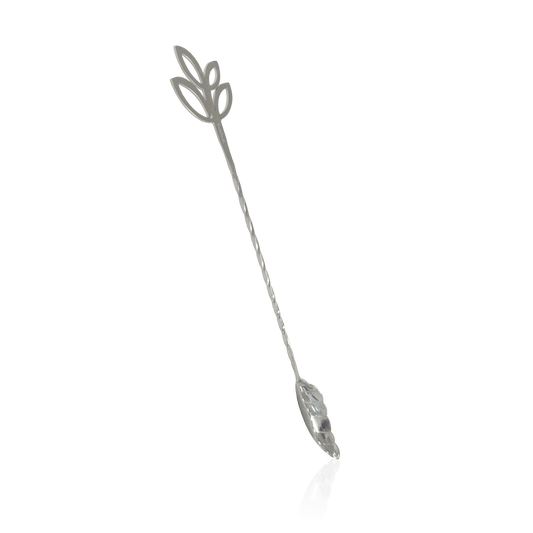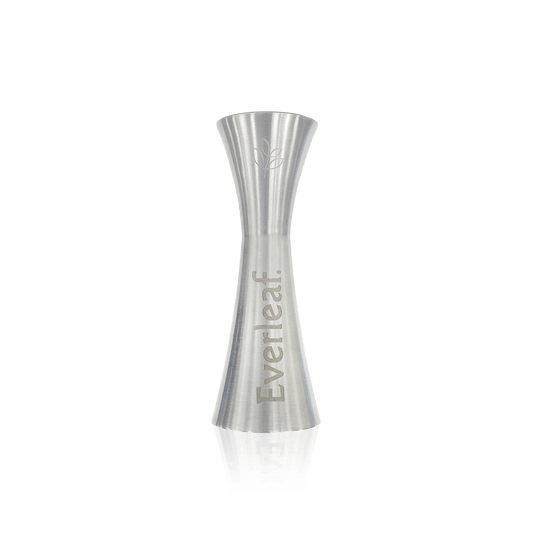Everleaf x Casey from Girls Who Grind Coffee
Whether it’s coffee or non-alcoholic beverages, we learn more from Casey about how taste and quality can be a vehicle for broader development. We celebrate International Coffee Day together with our Everleaf Forest Non-Alcoholic Espresso Martini using Girl Who Grind’s, ‘Oh My Goth’ blend.
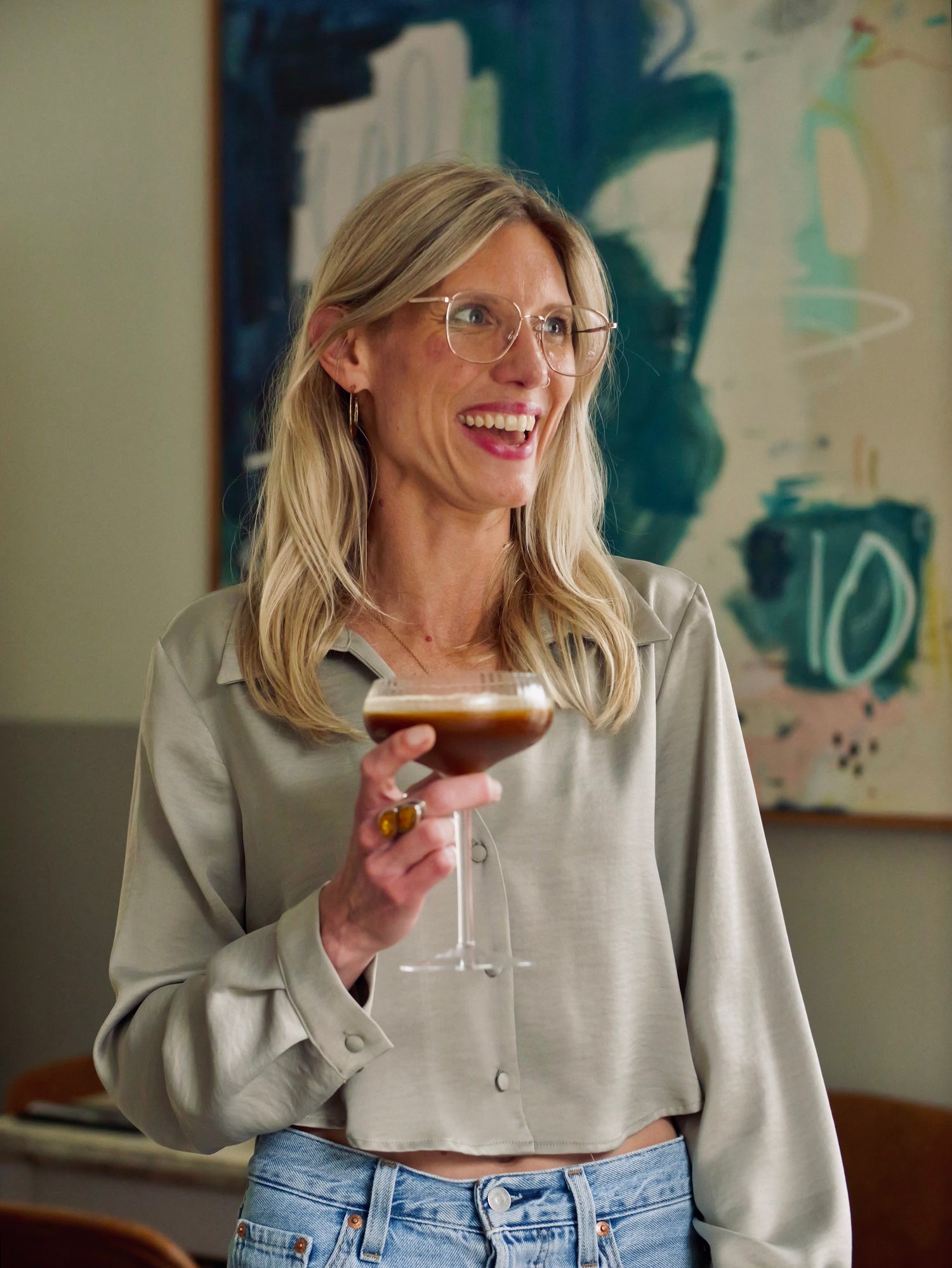
Girls Who Grind Coffee is a female founded speciality coffee roastery owned by Casey LaLonde, based in Wiltshire, UK. The brand is committed to sourcing coffee exclusively from female producers around the world, aiming to contribute to full-circle empowerment of women throughout the supply chain. By highlighting the stories of women growers and ensuring fair pay, the company seeks to promote gender equity in an industry historically dominated by men.
We sat down with Casey, who steers Girls Who Grind Coffee, in a local-favourite restaurant and bar in Bath, Always Sunday TOWN + HOUSE. Casey shared what she thinks of non-alcoholic drinks in her lifestyle and more about her brand and the drink we’ve collaborated on today - the Everleaf Forest Non-Alcoholic Espresso Martini using her blend Oh My Goth.
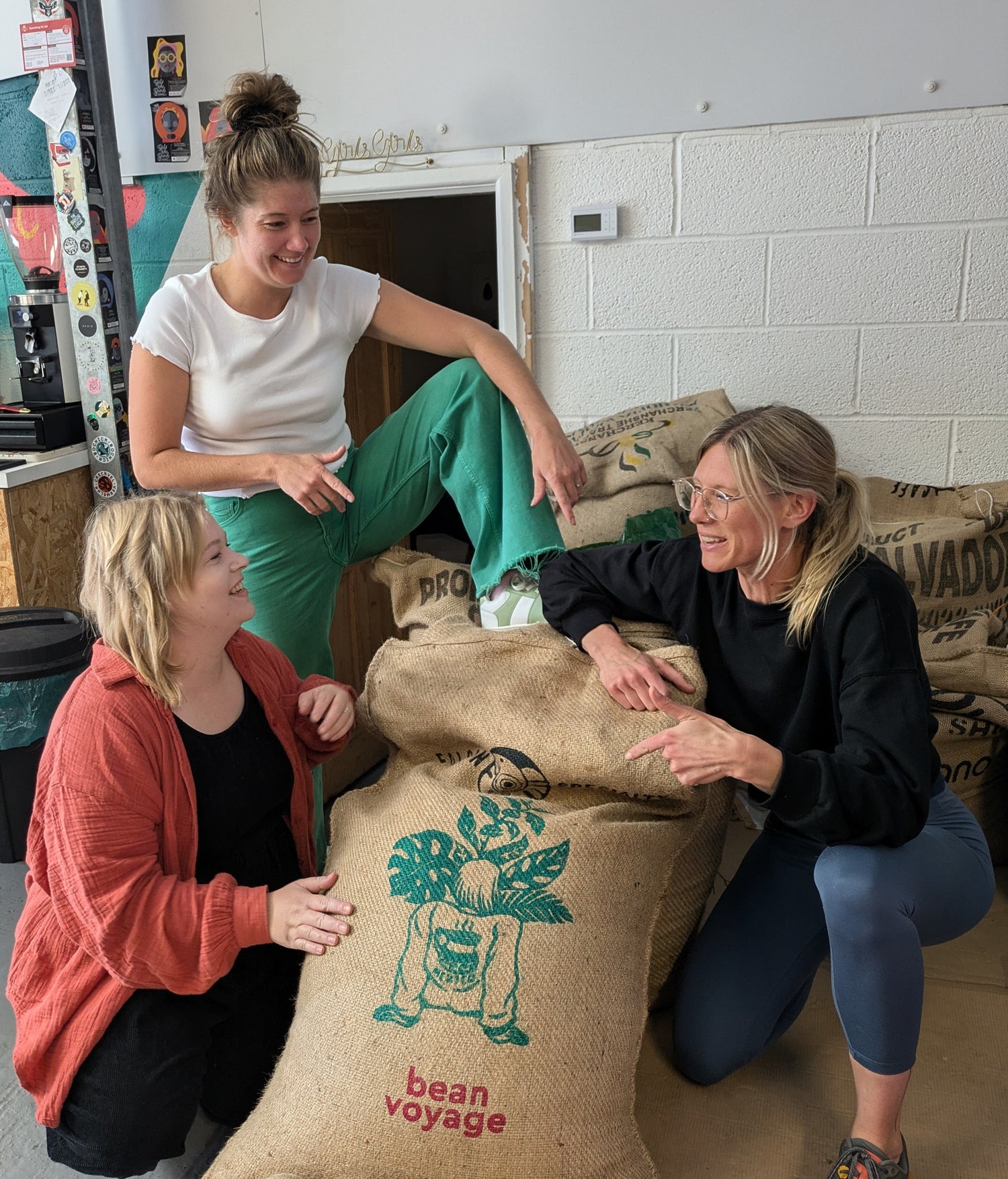
What inspires you to enjoy a non-alcoholic lifestyle?
Drinking alcohol just made my anxiety so bad. So bad. And it got to the point where I was like, "I'm not enjoying this very much." Like, it's not worth it for me. And I am a big fan of a healthy lifestyle. Like, I like feeling good.
I have two children. I want them to see me as like - “My mom lives this healthy lifestyle, she doesn't drink and she can still have fun - even though she doesn't drink alcohol”. I want them to see that!
I also love drinking nice things. And you know, when I go to a restaurant and they've made an effort with the non-alcoholic drinks it's so important, isn't it?
Where I've had one of the best non-alcoholic cocktails is actually at, Cafe Murano in London - they use Everleaf in it!. They put so much effort into the drink and they're seasonal and I think it had something like sloes in it - it was delicious and I didn’t feel like I was missing out on any flavour at all.
I'm wanting to have the same tasty, fun, colourful evening alongside everybody else, but to not feel different or stigmatised.
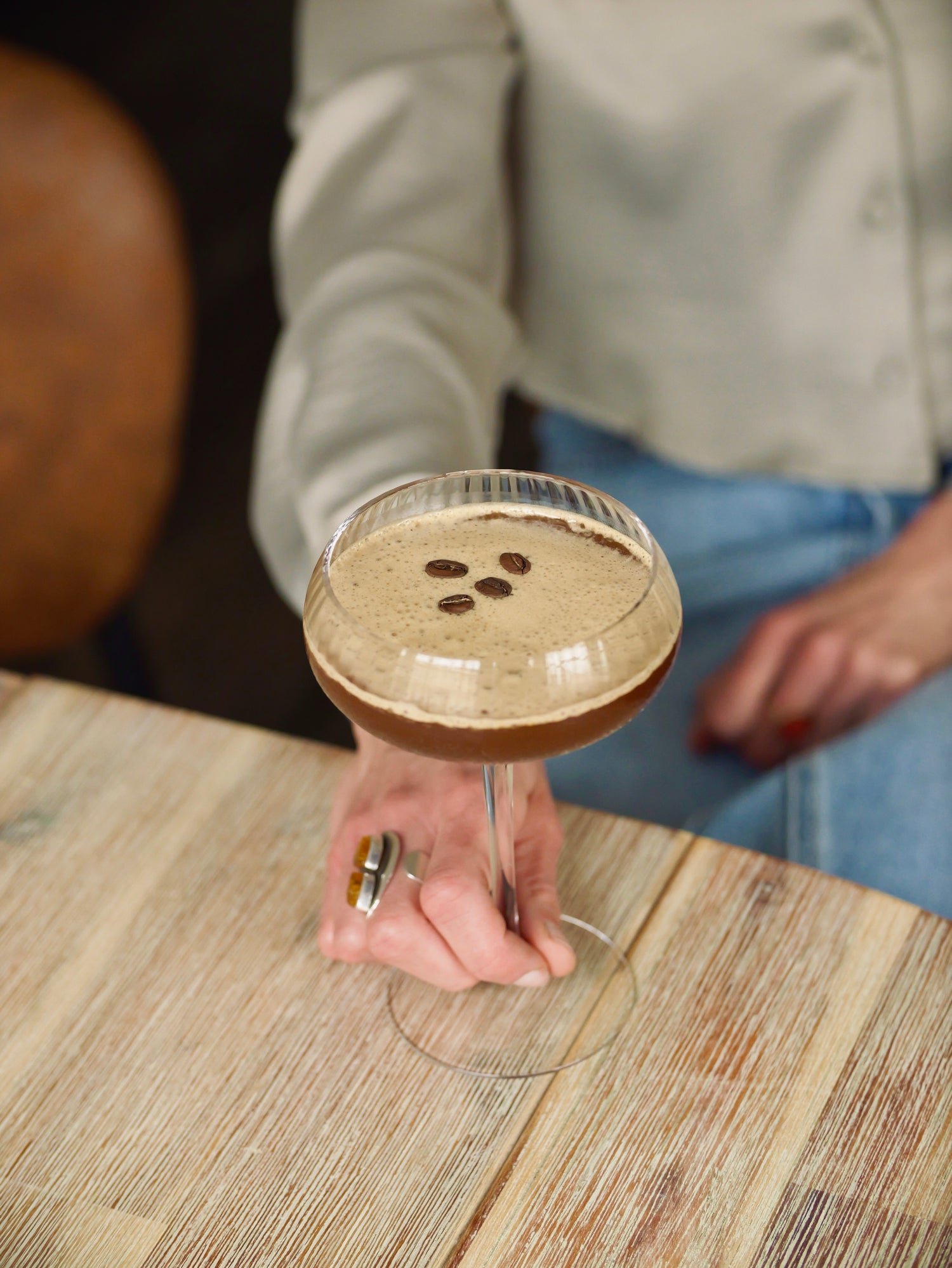
How do you feel about increasing visibility for women working in coffee and how visibility is key?
It’s all about visibility and the more you see it, the more normalised it becomes. That's something that we do in Girls Who Grind Coffee with amplifying female coffee producers, it’s important to do because women in coffee generally feel like 70% of the work that goes into coffee is done by women.
In the UK, there are very few roasteries owned by women. There's a lot of women in coffee, but not the women in those positions of power.
Likewise, with coffee producers. So many women, so many women's hands, touch the coffee and very few women receive the money, you know? They're not making the decisions. They're not running the businesses. We're trying to highlight the women who do that so other women will see and go be like, "Oh, I can do that."
It’s the same with non-alcoholic drinks, the more people see people enjoying them the more normalised it becomes, over time there won't be that stigma attached to it.
There's still so much room to grow in representation, especially not being viewed as just a token - it's not a gimmick.
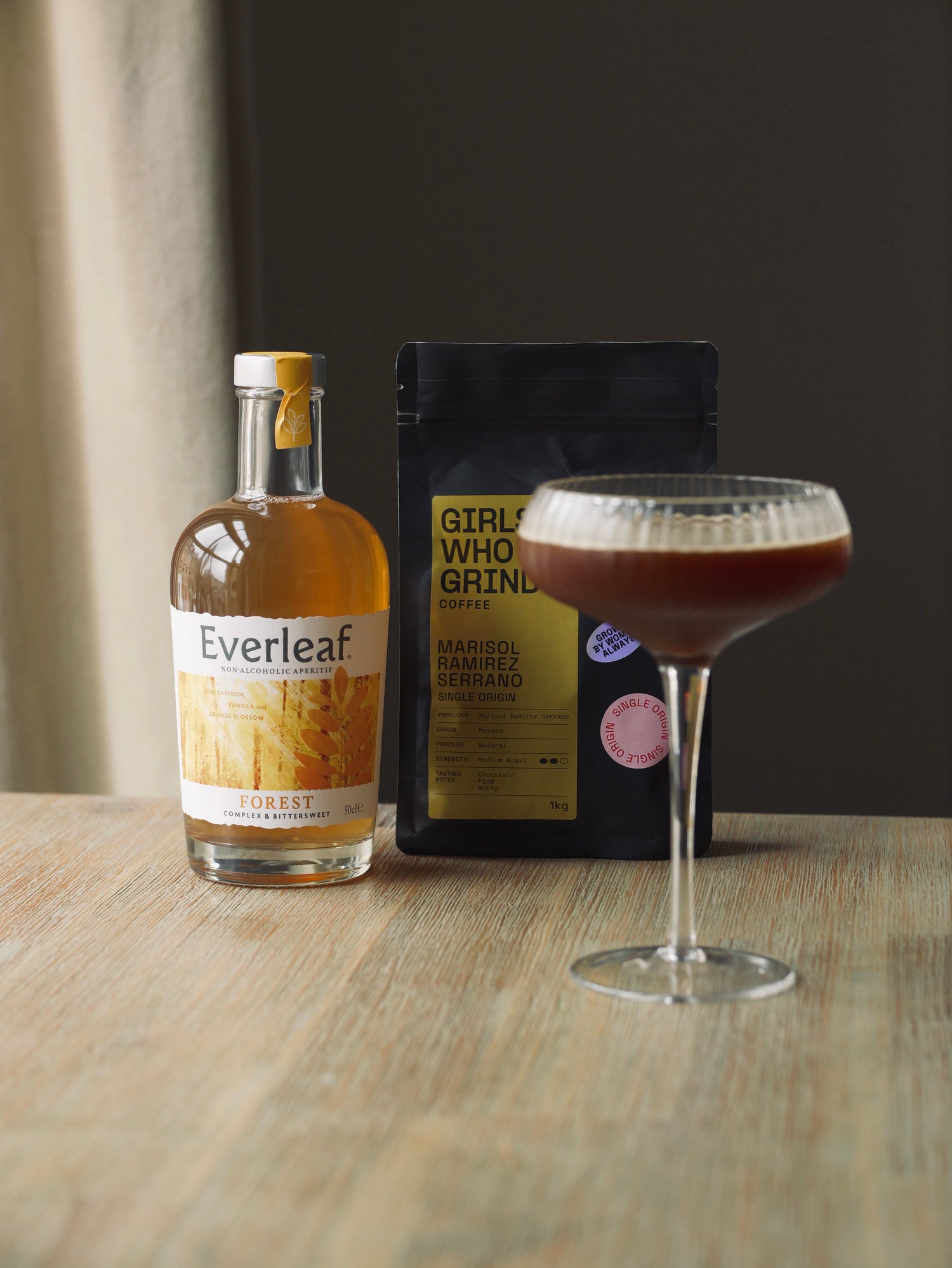
Coffee is about relationships where everyone's prosperity is full-circle, it’s all connected.
Coffee is very personal for me - I feel like the stories of the producers behind the coffee need to be encompassed in our definition of quality - you can't think about it without including the people.
That's where we differ from other roasters. We don't just buy coffee to fill a gap in our menu, we always think about the producers first. Like Marisol from Bean Voyage, she's a Q grader (similar to a sommelier for wine) which is a big accomplishment in coffee and for people living in coffee-producing areas, there are barriers to gaining access to qualifications like that.
Marisol is involved in an organisation called Bean Voyage, a feminist organisation working to create thriving businesses for female coffee producers. They basically sign up to their program and it's this comprehensive approach to coffee, where Bean Voyage teaches producers how to increase their quality, all the way through to making a business plan and how to price your coffees - it's incredible.
It's important that the business grows but it grows in a way that we hold onto all of our values and all of our ethics. But you can do that. I think that the more coffee that I sell, the more coffee I can buy from producers to (for us all to) provide full-circle benefits for each other - it’s a collaboration.
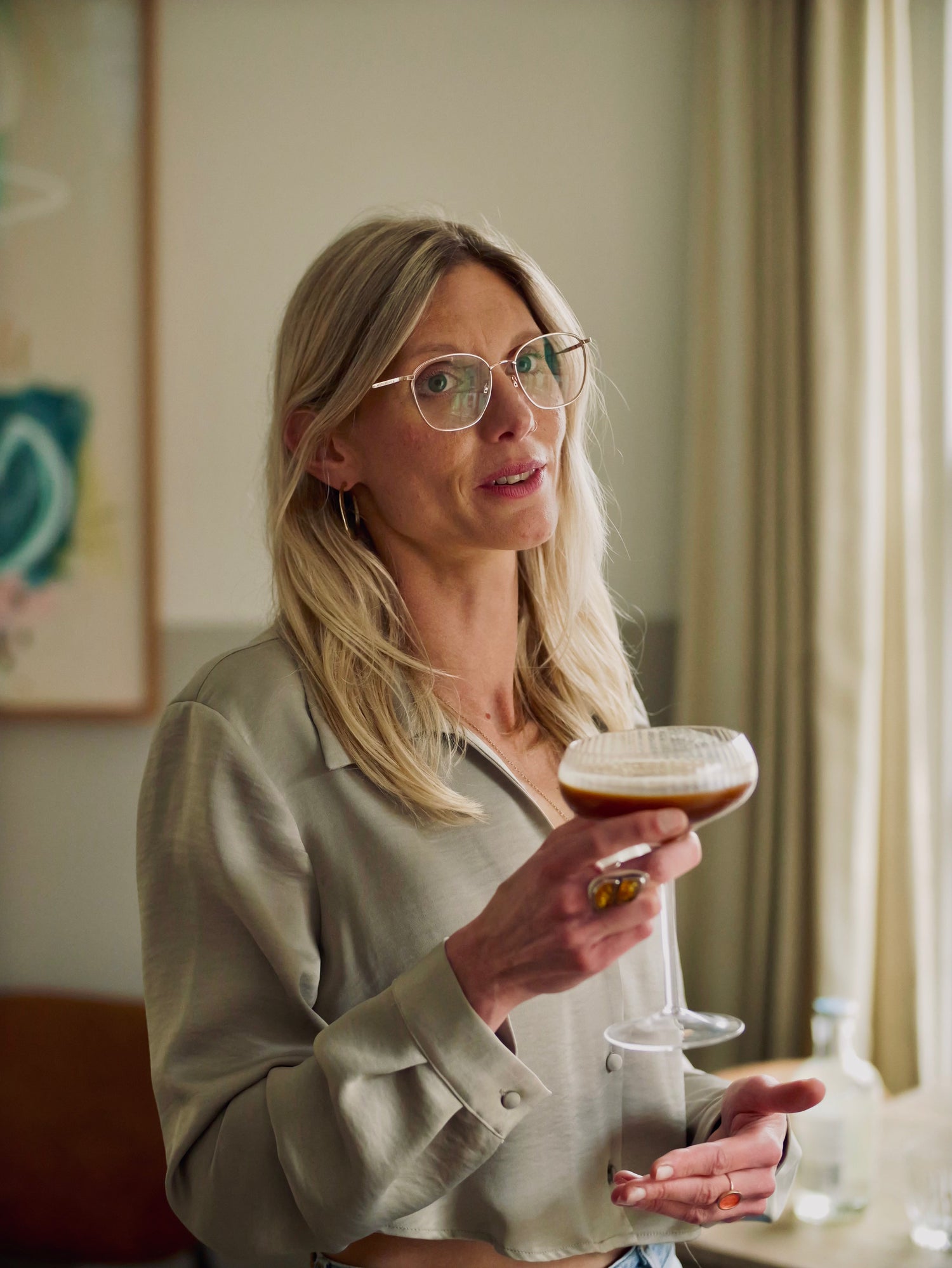
Can you tell us more about how you experience taste, Casey?
There are no wrong answers when it comes to coffee and tasting, but it's really interesting when I talk to people about tasting coffee. I like people to think about it more broadly, so when you taste something don't just think about what it tastes like, what sort of shapes does it conjure up? Or colours?
Whenever I'm cupping coffees, colours come to mind. If I taste a really acidic coffee and loads of citrus fruits, pineapple or passion fruit, I think yellows and oranges. If I taste something like a nice washed Colombian, I'll be like, oh, blue's and purple's and I can taste those blackberry notes and I always associate colour.
I love that it's evoking something different from each palete, everyone's got their own interpretation and it feels, just like Everleaf flavours - transportive.

How does a decaf coffee compare to an ordinary coffee?
Taste comes first when you want a drink experience. Decaf and coffee, much like alcoholic and non-alcoholic, are quite often more expensive because of the process. If the quality is not there, the taste isn't there, it's like you're being punished.
I am a big fan of decaf coffee. I drink two coffees a day and on special occasions like today I'll have more, and then I go on to decaf. I really feel like decaf should be just as tasty. The same goes for non-alcoholic drinks, people think they're going to get less taste when they have them, which shouldn’t be the case.
It's so important to value taste first in decaf and non-alcoholic, it's important we have these options and to be inclusive, isn't it?
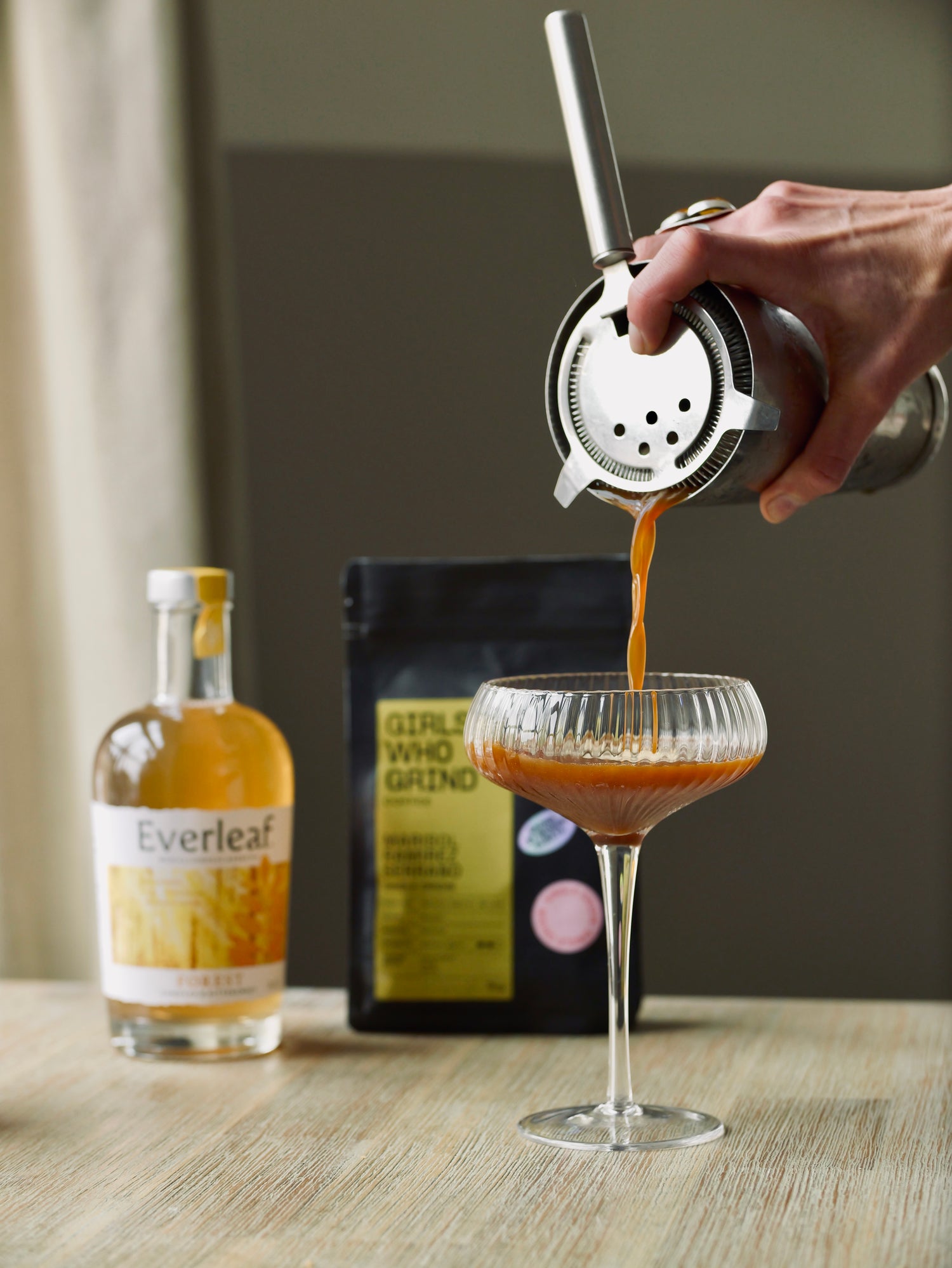
What do you think of the Everleaf Forest Espresso Martini using Girls Who Grind Coffee ‘Oh My Goth’?
It was delicious and it was such a balanced drink. Drinks are sometimes either too sweet or not sweet enough but the balance was just right.
‘Oh My Goth’ and Everleaf Forest go so well together - they really complement each other. The ‘Oh my Goth’ is a more developed blend to get those caramel-y, smooth chocolate notes. This makes the drink quite smooth, you don't feel it's different to an alcoholic one at all because the taste and the richness is there.
It's a bit punchy, just like you would get in an alcoholic but without the hangover. - you’re not missing out on anything flavour-wise.
